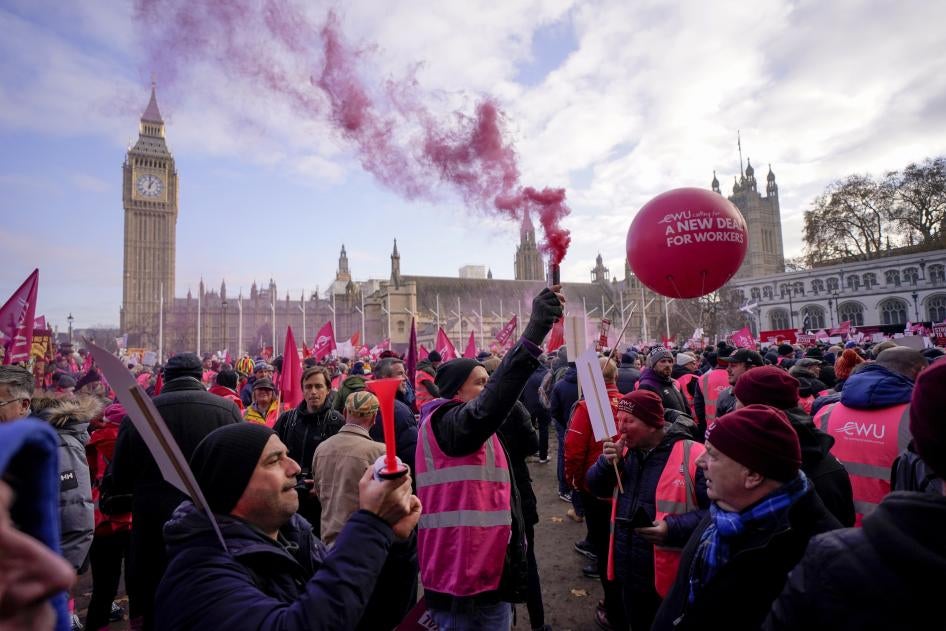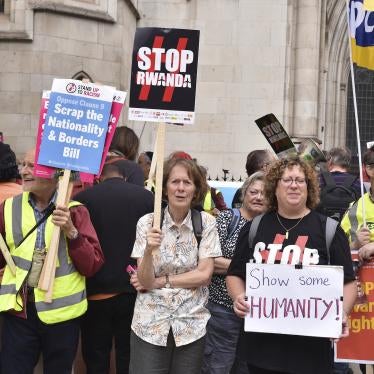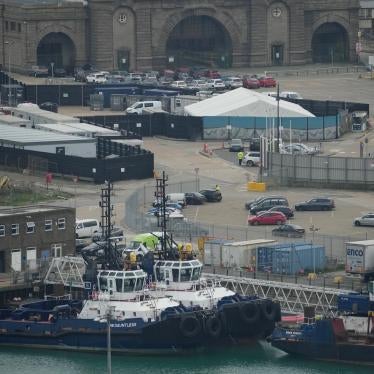Under pressure to tackle what the media calls a “winter of discontent,” British Prime Minister Rishi Sunak has promised “tough” new laws to limit proposed worker strikes. Although unclear what form these laws will take, if enacted they risk joining a roster of legislation aimed at criminalizing people’s right to protest.
Britain finds itself in the grip of the worst cost-of-living crisis in decades. Inflation is at a 41-year high. Food and energy bills have skyrocketed in the last few months. Millions are struggling to cope.
It is against this bleak backdrop that workers, including nurses, teachers, border force staff, and transport workers, have decided to take action. For nurses, this week will be the first time in the union’s 106 year history that they have gone on strike. After years of stagnant wages and a growing pay squeeze, they say they are left with little choice.
The right to strike is a cornerstone of a functioning democracy and a fundamental right, for example under the European Social Charter. This right gives workers a voice and allow them to display solidarity.
More broadly, peaceful protests and the right to free assembly allow individuals to hold those in power to account, something to which the UK government seems increasingly averse to.
Yet despite this, the controversial Public Order Bill, aimed at criminalizing many protesters, is going through Parliament. The bill reintroduces several anti-protest measures that have already been rejected by the House of Lords.
Were it to become law, just attending a protest could result in being served with a “serious disruption prevention order” restricting their right to protest, in part by limiting who they can associate with, what they can do online, and where they can go. A protester could be served with an order if they have twice within the past 5 years “carried out activities related to a protest that resulted in, or were likely to result in, serious disruption to two or more individuals, or to an organization”. Neither “serious disruption” nor “activities related to a protest” are defined. Breaching this order can carry a 51-week prison term.
The ramifications of the bill are chilling, and it has no place in a democracy. A parliamentary committee has said it violates fundamental rights. The UK government is rightly critical of authoritarian governments like China and Iran for their brutal crackdowns on protesters. If the UK government wants to be taken seriously on the world stage, it should practice what it preaches.










